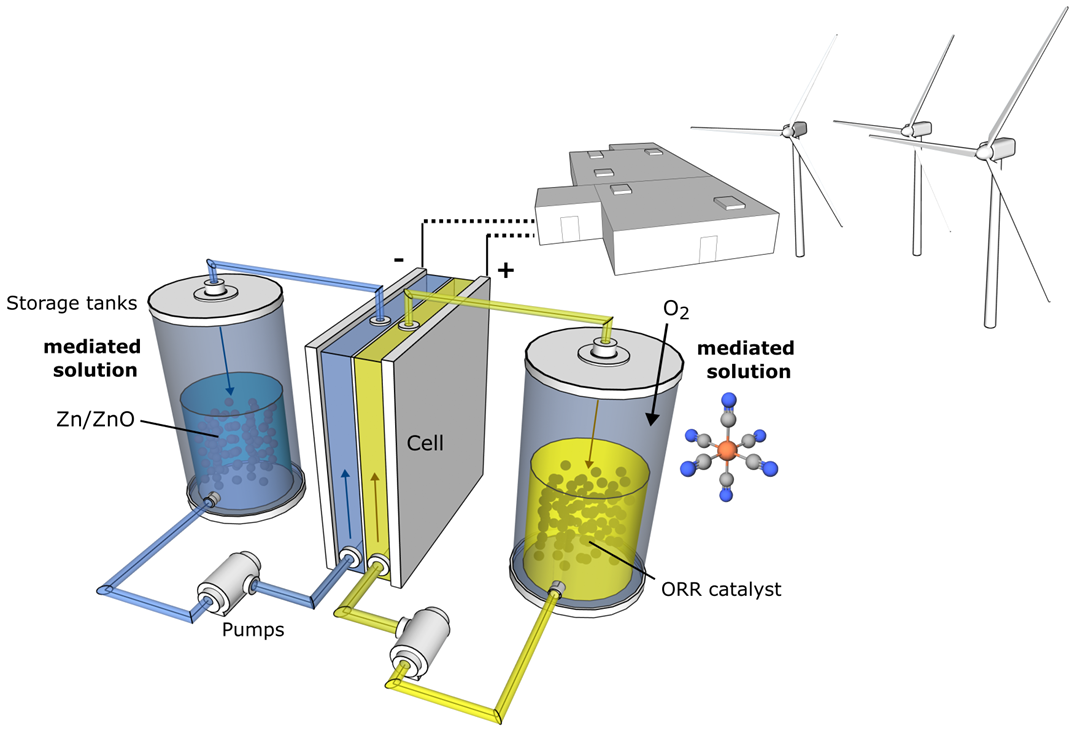Flow batteries have the potential to provide scalable, long-duration energy storage solutions that can effectively tackle the grid resiliency challenges.
However, innovative chemistries and flow system designs are essential to maximize the potential of these solutions in meeting our future energy storage demands efficiently and sustainably.

The penetration of renewable energies into the electric grid increases the demand for long-duration energy storage to ensure reliable power supply, grid resiliency, and cost reductions. Electrochemical energy storage (EES) technologies, such as Li-ion batteries, are usually considered for short-duration energy storage (4-6 hours). When talking about seasonal storage, fuel storage could potentially be the preferable option because of the long-discharge duration sustained and the relatively long lifetime. However, low round trip efficiency from combined use of fuel cells/electrolysers, and the problems associated with direct incorporation of hydrogen into the gas grid and/or the combustion of fossil fuels can still be a challenge.
The goal of ReZilient is to fill the gap between short-term EES and long-term fuel storage by developing and demonstrating at TRL 4 (lab-scale) a completely new zinc-air flow battery technology. A disruptive redox-mediated strategy for enhanced charge transfer processes is employed with the goal of confining the Zn/Zn2+ redox reaction in the negative reservoir (filled with a semi-solid zinc solution) and eliminating the electroplating process inside the cell (no dendrites) to improve battery lifetime. This will allow discharge times beyond days, contrary to conventional zinc-based batteries where long discharge is hampered by the formation of a cm-thick zinc anode.
The technology has disruptive potential in terms of both extremely low levelized-cost-of-storage, extended storage time, recyclability, and use of non-critical-raw-materials. A pilot concept design of the cell will be conceived after demonstration of the technology. The output of this design will lead to an update of the business case of the distribution network operators and potential customers.
SINTEF Energi AS will coordinate the project, develop multi-physics models for optimizing the cell performance, and will support the design and construction of a 6-kWh flow battery with a new tank design to be tested and validated for 6 months.
This project is funded under: HORIZON EUROPE The European Innovation Council (EIC)


